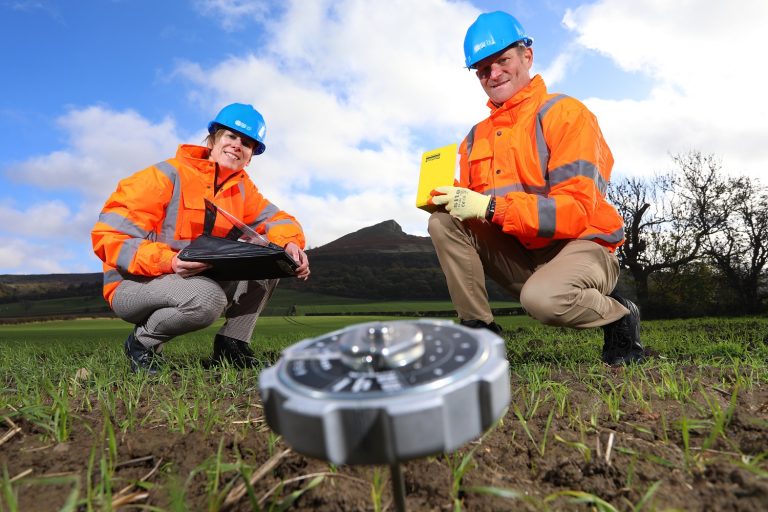Green light given for new £12.5m health hub in Castleford
Health care for residents in Castleford will get a massive boost after councillors gave the green light to a multi-million pound investment in a new purpose-built health hub in the town.
With increasing demand for healthcare services, Wakefield Council is investing £12.5 million in building a new hub, after Cabinet members approved funding for the plan (on Tuesday 8 November).
Two existing GP practices, along with a new practice and Council services will open in the building, that is planned on the site of the car park of an existing health centre, in Welbeck Street.
The new healthcare hub aims to help ease pressure on local hospitals and other NHS services by allowing residents to receive a wider range of treatments, closer to home.
The leader of Wakefield Council, Cllr Denise Jeffery, said: “I am delighted that this decision means we can move forward to achieving better health care for residents in Castleford.
“We want to support ways to create better health and lives for our residents and this new hub is part of our goal to make Castleford a great place to live with access to the best services.”
Jo Webster, accountable officer for Wakefield District Health and Care Partnership, said: “This is a great example of partnership working in Wakefield District and I’m delighted this is now becoming a reality.
“This new health centre, in the heart of Castleford, will provide excellent integrated healthcare services for local people, with better facilities and an improved environment for both those using and working in the building.”
The new hub becomes the first major regeneration project to be achieved by the Council, which recently committed to transforming the town centre and bringing improvements that could benefit residents, businesses, and visitors.
The health hub proposal comes under the Strategic Regeneration Framework for Castleford, and is a guide to how the town centre could be developed over the next two decades by the Council and in collaboration with other organisations.
This project is being delivered in a partnership between Wakefield Council, the West Yorkshire Integrated Care Board (ICB), and NHS Property Services.
Most of the Council funding will be covered by them leasing the building back to the occupiers.
Construction work on the new health hub is expected to start in the summer of 2023 and be completed by early 2025.
Sheffield transport company fined £400,000 after driver killed
A Sheffield transport company has been fined £400,000 after one of its drivers was killed after being knocked off his trailer while loading and unloading it.
On 16 November 2020, Robert Gifkins, who worked for Arnold Laver & Company Ltd, was delivering timber to a company in Whaddon near Salisbury. He had climbed onto the bed of his trailer to sling the load and attach it to the vehicle-mounted crane. While moving the load using the crane’s remote control he was struck by the crane and fell from the vehicle to the ground. Mr Gifkins was taken to hospital and subsequently died on 17 December 2020.
An investigation by the Health and Safety Executive (HSE) found that this incident was the result of health and safety failings by the company. The risks associated this work at height had not been properly assessed and the risk of falls had not been adequately prevented or controlled. The company had also not provided Mr Gifkins with sufficient training and instruction on the safe operation of the remote crane controls on the vehicle.
At a sentencing hearing at Salisbury Magistrates’ Court on 13 October, Arnold Laver & Company Ltd, Bramall Lane, Sheffield, pleaded guilty to breaching section 2(1) of the Health and Safety at Work Act. Passing sentence on November 9 they were fined £400,000 and ordered to pay costs of £19,841.99.
Speaking after the hearing HSE inspector Leo Diez said: “Falls from vehicles can be overlooked by employers when considering risks from work at height. Simple control measures would have prevented this accident.”
In a victim personal statement from Mr Gifkins’ family, his mother Betty Gifkins said: “The pain of losing a son is only made worse by the fact this is the second son I have lost. I try not to think of him in the hospital as this only adds to my sadness. I miss him every day.”
Synectics sells non-core business
Synectics, a Sheffield-based leader in the design, integration and support of advanced security and surveillance systems, has revealed the conditional sale of the business of SSS Management Services Limited, which is a trading entity of its Synectics Security division, for cash consideration of up to £0.2 million to Parfas Limited.
The transaction is subject to certain closing conditions and is expected to be completed on or before the company’s financial year end on 30 November 2022.
SSS provides monitoring and managed services, principally to multi-site retailers in the UK. These activities are considered by the Board to be non-core and are not part of the company’s growth plan. The sale of the business will allow the company to focus on the growth of its core business and allow SSS to prosper under private ownership.
The consideration comprises an initial cash payment on completion of £0.1 million with the balance, conditional on the profitability of SSS post-sale, payable following the first anniversary of completion. The proceeds will be used for general corporate purposes.
In the company’s last financial year ended 30 November 2021, the SSS business generated audited revenues of approximately £7 million and an operating profit of less than £0.1 million and, as at 30 November 2021, had audited net liabilities of approximately £1.6 million.
Paul Webb, CEO of Synectics plc, said: “SSS Management Services is a unique business with a very strong management team that will thrive under private ownership.”
Stacey Anderson, Managing Director of SSS, added: “While our long-established business has been part of Synectics for some time, we believe that we can serve our customers better as an independent privately owned business remaining true to our core values of providing the very best levels of service, independent of service providers.”
Leeds engineers launch new geotechnical department to meet strong customer demand and strategic growth
A Leeds engineering firm has opened a new geotechnical department as it looks to expand its operations and improve customer service.
The move by Park Square-based RWO will see a range of ground construction services, including oil and rock, underground water, site and structural condition engineering and assessment expertise, available alongside the firm’s current structural and civil engineering services.
Headed up by experienced geo-environmental engineer Chris Rudd, who has worked in geotechnical and contaminated land ground investigation, geotechnical interpretation, coal mining legacy, land remediation, landfill engineering and waste classification, the department will be based at a new office in Stokesley, North Yorkshire.
RWO, which currently employs 35 people across its offices, and is targeting sales revenues of £3 million within the next 12 months, is seeing strong demand for geotechnical expertise from clients and new business requiring additional engineering support.
The geotechnical team is expected to grow as workloads increase in the coming months and the firm is currently recruiting additional specialist engineers and technicians to meet demand.
Managing director Ross Oakley said that the firm’s success is based on its ability to deliver services that add value and provide effective engineering solutions for complex problems.
He added: “We are really excited to launch our geotechnical engineering capabilities, which will complement our technical and advisory service arms. It’s a great advantage to our clients to have access to cost effective geotechnical services as well as structural and engineering support from the same company.”
Chris Rudd said RWO’s move to provide a geotechnical services arm was part of the company’s vision to provide clients with a full suite of high-quality technical engineering services.
He said: “I’m really looking forward to the challenge of building a highly skilled, well-resourced and dedicated team to meet the client needs as the firm moves ahead in the coming months despite the challenging economic conditions. We see opportunities across the UK as construction and the new homes sector continue to invest, with some great projects coming online.”
New owners for pair of high-dispensing Halifax pharmacies
Specialist business property adviser, Christie & Co, has sold a pair of high-dispensing Halifax pharmacies.
The sale comprised a pair of well-established GP-integrated pharmacies in Halifax, West Yorkshire, which trade under the Medichem brand. One is located at a Kos Clinic in Hipperholme, and the other at Northowram Surgery in the village of Northowram. Together, they dispense circa 20,000 items per month.
The pharmacies were previously owned and operated by Pharmacist Directors, Rajeev Dhand and Ivan Ng, in partnership with the adjoining surgeries’ GPs. They decided to sell to concentrate on another pharmacy business in Leeds and pursue other projects outside of community pharmacy.
Following a confidential sales process with Christie & Co, they have been sold to Pharmacist Director, Jeet Vadodaria, and his partners that include the Principal GP at the two surgery locations. They already own Swillington pharmacy near Leeds, which was also acquired via Christie & Co in 2021, and plan to expand the vaccination offering at both sites and to enhance the business’s additional services offering. They will also redevelop the surgery and pharmacy at the Hipperholme site, eventually moving into a brand-new, purpose-built retail unit.
Rajeev Dhand says: “Having instructed Jon at Christie & Co to successfully sell my Medichem pharmacy in Pontefract earlier this year it was no surprise that we had a competitive bidding process for the Halifax sites when they were launched to the market. The new owners inherit a pair of excellent pharmacies and I have no doubt that, with the plans they have for developing the business, they will become even more successful with such a strong base to begin. Ivan and I wish the new owners and the staff the very best for the future.”
Jeet Vadodaria says: “We are grateful to Raj and Ivan for their patience in completing the purchase during the economic turmoil in markets. This completion proves that independent pharmacies with a strong operational base and an enthusiastic business plan for the future still attracts the lenders and allow ambitious owners to expand their existing portfolios. We would like to wish Raj and Ivan all the best for their future.”
Jon Booth, associate director at Christie & Co, who handled the sale, comments: “These two pharmacies received a great deal of attention when we launched them to market as they are located very close to one another and have above-average dispensing volumes. I was pleased to have sold these pharmacies for Raj Dhand following the successful sale of Medichem – Pontefract Ltd for him earlier this year, and I’m sure that they’re in good hands with the new owners.
“High-quality assets of this type still remain rare to the market across West Yorkshire and, despite the ongoing uncertainty both within the sector and the wider economy, we are still experiencing robust levels of interest for these types of opportunities.”
These two pharmacies were sold for an undisclosed price.
Frenchgate partners with Yorkshire Wildlife Park for a competition to name polar bear
Frenchgate Shopping Centre in Doncaster city centre has launched a competition in collaboration with Yorkshire Wildlife Park as part of their new Christmas campaign.
The Centre’s Christmas campaign has a new theme for 2022 named “Project Christmas” featuring a hand-crafted paper snowy white polar bear at the centre of the campaign, and Frenchgate is giving young visitors to the Centre the opportunity to name the bear.
The paper sculpture has been brought to life by Yorkshire artist Andy Singleton, whose work is an exploration of the natural and manmade world through intricate paper cuttings, paper sculpture, hand-drawn illustrations and large-scale installations. He has previously worked with a number of high-profile clients including Sony PlayStation, Burberry and Harrod’s among them.
As part of the campaign, the Centre will be highlighting issues facing polar bears and their environment, which is a contributing factor to their vulnerability as a species.
Launching on Wednesday 9th November, visitors to the Centre will be able to visit the sculpture of the bear outside H&M and Beaverbrook’s which will have its very own postbox for anyone wanting to suggest a name for the bear.
Polar bears have a special place in many Doncasterian’s hearts due to the city being home to the only polar bears in England at Yorkshire Wildlife Park, the largest centre for polar bears outside of Canada.
The winner of the competition will win a tailor-made Polar Bear experience courtesy of Yorkshire Wildlife Park.
Ian Leech, Marketing Manager for Frenchgate said: “It’s fantastic to have the support of the Wildlife Park, home to the only polar bears in England, on our latest Christmas campaign.
“The Park is more than aware of the dangers facing the bears as a result of climate change and we aim to help raise awareness through our latest campaign Project Christmas.
“The competition to name the polar bear is a great way for visitors to get involved. When children visit the polar bear and submit their entry to the postbox, they will see facts all about polar bears that will help educate and inspire.”
Lindsi Blakeman, Head of Sales and Marketing at Yorkshire Wildlife Park said: “We’re more than happy to support Frenchgate with their latest campaign Project Christmas.
“Anything that highlights how incredible and vulnerable some of Doncaster’s most famous residents are is something Yorkshire Wildlife Park can get behind.”
Yorkshire carbon consumption levels rise due to the cost of living crisis
UK household carbon emissions increased less than expected in 2021 despite the easing of national lockdown restrictions, according to new research by Accenture.
Accenture’s UK Carbon Consumption Index – which looks at how the nation’s consumption habits play a role in changing carbon emissions – found that UK households’ average weekly CO2 emissions rose by less than 1%, from 315kg in 2020 to 317kg in 2021.
While the marginal uptick in household emissions could suggest that consumers took up more sustainable consumption habits, accompanying analysis of adults across Yorkshire and the Humber found that a majority believe the rising cost of living will impact their ability to consume more responsibly in the future. Specifically, 61% agreed that the energy price cap rise will negatively impact their efforts to be more sustainable.
Almost half of consumers in the region (49%) said they are more likely to prioritise price over environmental factors when shopping because of the rising cost of living compared to just 6% who are likely to prioritise the environment over price.
Respondents across Yorkshire and the Humber also called out the role of businesses, with over half (55%) agreeing that companies aren’t doing enough to limit carbon emissions in products and services.
Of the steps brands could take to encourage people to shop more sustainably, rewards/incentives for recycling/returning the product were identified as the most effective by those in the region (53%), followed by lower cost sustainable products (51%).
Stephen Rippengill, Managing Director at Accenture, Leeds, said: “Yorkshire and the Humber has a long history at the forefront of the manufacturing industry, and we benefit from science and innovation parks across the region that are helping to drive the modern industrial revolution. However, it’s clear that the current cost of living crisis is impacting people’s ability to make environmentally conscious decisions. Now more than ever, businesses need to be working together to further innovation that delivers more cost effective, sustainable solutions that people can adopt regardless of the economic outlook.”
Under-30s became ‘carbon conflicted’
Nationwide, the biggest jump in carbon emissions was amongst the under 30s – a 6% increase to 125kg in average weekly carbon emissions per household member. At the same time, two-thirds of 18-24 year olds (65%) said that environmental sustainability is important to them – the highest of any age group surveyed. Overall, average weekly emissions per household member was the highest for the 65 to 74 age group in 2021 at 164kg, followed by 50 to 64 year olds at 156kg.
Hospitality, shopping and transport emissions rise as restrictions eased
Across the UK, ‘housing, fuel, and power’ were still the biggest sources of carbon emissions, making up just over two-fifths of UK households’ CO2 emissions in 2021, though overall emissions in this category dropped.
This drop suggests that consumers may have invested in making their homes more energy efficient, as all products in this category saw significant reductions in their emissions intensity, including gas and electricity emissions, which fell by 18% and 9% respectively. Moreover, expenditure for the ‘maintenance and repair of dwelling’ category went up by 10% in 2021 compared to 2020.
The category which saw the biggest emissions increase was ‘Restaurants and Hotels’, up 90% to 10.8kg. However, this was largely driven by takeaway meals, highlighting another retained behaviour from successive lockdowns.
Other spending categories which saw significant emissions increases were linked to consumers returning to socialising and hospitality, including ‘Transport’, up 20% to 100.6kg, and ‘Clothing and Footwear’, up 21% to 4kg.
Cutting carbon vs cutting costs
Despite challenges around the cost of living crisis impacting consumers ability to make greener consumption choices, respondents said they would consider behavioural changes to both cut costs and be more sustainable.
In Yorkshire and the Humber, almost three-quarters (73%) would cut back on heating to save money compared to under a quarter (23%) who said they would do so for environmental reasons. 61% said they would cut down on food waste to reduce costs and 32% would do so to be more sustainable.
Toby Siddall, Sustainability lead for Accenture in the UK and Ireland concluded: “Given the challenging economic environment, sustainable products and services need to be positioned as a cost-effective option for the consumer, not a premium choice. Shifting towards more circular and sustainable business models will help businesses achieve this by spurring innovation in products and production. Businesses can only make sustainability a real force for change by embedding it into the heart of their operations to drive more sustainable consumption among their customers and wider society.”
Research Methodology
Carbon Consumption Index (CCI)
Accenture commissioned Centre for Economics and Business Research (CEBR) to produce the research. To calculate the level of emissions generated by each specific product, the average weekly spend by UK households on that product is multiplied by the estimated level of embedded CO2 emissions generated by a £ worth of spending on that item. Data on average weekly spending across different categories is sourced from the Office for National Statistics’ (ONS) Living Costs and Food Survey, while the levels of CO2 emissions per £ of spending are based on the Department for Environment, Food & Rural Affairs’ (DEFRA) published estimates. These emission estimates capture the carbon footprint of the production of any goods and services that are consumed in the UK, regardless of where in the world these emissions are generated. Crucially, this means that imported emissions are included in the research results. With this methodology, the emissions associated with a car produced in Germany and purchased by an individual in the UK are reflected in UK consumers’ total emissions, on the basis that the emissions are generated on the behalf of the UK customer. Since a kilogram of CO2 generates the same amount of global warming, irrespective of where it is generated, the inclusion of imported emissions is necessary in painting a complete and representative picture of UK consumers’ carbon footprint.
There was a revision to the previous CCI’s estimated average weekly CO2 emissions for 2020 (up from 204.3kg to 315.3kg) based on the latest ONS expenditure data. The revision can be attributed to two factors: first, DEFRA regularly revises its emissions estimates when publishing its updated tables based upon the latest source data. Second, the estimates of households’ consumption in 2020 were replaced with data from the ONS Living Cost and Food Survey for that period.
YouGov Polling
YouGov conducts its public opinion surveys online using something called Active Sampling for the overwhelming majority of its commercial work, including all nationally and regionally representative research. The emphasis is always on the quality of the sample, rather than the quantity of respondents. When using Active Sampling, restrictions are put in place to ensure that only the people contacted are allowed to participate. This means that all the respondents who complete YouGov surveys will have been selected by YouGov, from a panel of registered users, and only those who are selected from this panel are allowed to take part in the survey. Once the survey is complete, the final data are then statistically weighted to the national profile of all adults aged 18+ (including people without internet access). All reputable research agencies weight data as a fine-tuning measure and YouGov weights by age, gender, social class, region and level of education. The public opinion survey commissioned by Accenture was conducted between 15th – 16th August 2022 with 2,006 respondents.
Fall in GDP sets country on course for quickest return to recession in almost half a century
The UK economy shrank by 0.2 per cent in the third quarter of 2022, setting Britain on course for the quickest return to recession since 1975 and offering sobering backdrop to the Autumn Statement next week, the Resolution Foundation said today (Friday).
While a smaller fall than markets expected, the latest contraction was widespread, with consumer spending shrinking amidst an acute cost-of-living.
Should the UK slide into recession next quarter it would be the quickest return to recession since 1975, with the UK only coming out of its last recession eight quarters ago (in Q2 2020).
The UK’s performance was weaker than all other G7 economies (though data for Japan has not yet been published).
James Smith, research director at the Resolution Foundation, said: “Falling consumer spending has caused the economy to shrink in the third quarter of 2022. This has set Britain on course for the quickest return to recession in nearly half a century.
“These latest figures provide a sobering backdrop to the Autumn Statement next week. The Chancellor will need to strike a balance between putting the public finances on a sustainable footing, without making the cost-of-living crisis even worse, or hitting already stretched public services.”
Freshney Place development planning application submitted
The planning application for a new market hall, a cinema and other leisure facilities at the Western end of Freshney Place have now been submitted into the planning system.
This is another opportunity for people to have their say on the scheme before it is considered by the Planning Committee in the months ahead, and is the time when statutory authorities can also submit their detailed comments.
As previously reported, the council has won significant grant monies for the transformation of the western end of Freshney Place, which it bought during the summer. The proposed leisure development will house a new cinema, with local and regional operator Parkway Entertainment Group coming in as an anchor tenant and pledging to provide a great venue to complement its offer in Cleethorpes.
The plans will also feature a remodelled entrance to the centre, which will be lined with units for leisure and eateries, and an entrance to a new and transformed Market Hall.
Prior to submission, public drop in sessions were held by the project team to inform residents and businesses what the scheme might look like if approved, as well as talking through the timescales for the various phases of the development.
During the consultation, the main issues highlighted by visitors included the leisure use of the area, parking once the improvements have been made, and the design, look and feel of the planned new buildings.
Alongside the plans for the Freshney Place development, North East Lincolnshire Council has launched a new project aiming to improve the town centre street scene. Focused on the Victoria Street West pedestrian precinct and surrounding streets, officers are encouraging owners of a relatively small number of street-facing properties to make improvements. They are writing to the owners of properties and advising them on the works needed to bring their buildings to an acceptable standard.
Work is also progressing on the Riverhead scheme, with the plans being put forward for approval by the Council’s Cabinet at the meeting next month. These plans do not require planning permission as it is permitted development on public land. If approved, work is expected to start in the early new year.
Cllr Philip Jackson, leader of the Council, said: “We have said all along that we are working to improve our town centres, to make them more attractive for people to live and work in. We have already seen the improvements to Garth Lane and St James’ Square completed, and now we’re working hard to deliver other elements of the Grimsby masterplan, as well examining opportunities to use empty spaces differently.”
Innovative Lincolnshire climate business vying for top national award
Up-and-coming climate tech company, Seaweed Culture, is one of the final 100 businesses from across Great Britain aiming to take home a top award at the Santander X UK Awards.
The Lincolnshire-based business seeks to tackle climate change by reducing methane emissions in livestock through the use of seaweed and is one of 60 business vying to win the Launch category at the Santander X UK Awards, where the national winner will take home a top prize of £15,000.
Seaweed Culture’s Founder and CEO, Luke Smith, developed his passion for supporting the environment whilst studying at the University of Lincoln, UK, and identified seaweed as a way to help the livestock industry meet net zero targets and create climate conscious products.
Luke, who received advice and funding from the University’s Student Enterprise Services to support his start-up journey, has developed a novel land-based cultivation system to grow a seaweed species not native to the UK.
When incorporating less than 0.2% into their daily diets, this seaweed species can reduced methane emissions from cows by up to 95% with no effects on the quality of meat or milk while also increasing productivity and reducing cost.
Having been selected from a field of 500 applications, Luke is now taking part in a tailored, intensive business training programme ahead of pitching heats at the Oval in London on 28th November where the Awards finalists will be selected.
Six businesses from the Launch category will be chosen to take part in the final the following day at London’s One Marylebone where the judging panel will be headed up by Santander UK CEO Mike Regnier.
Speaking about his progress in the Awards, Luke said: “Being part of the Santander X Cohort has really helped the business refine its approach moving forward. It has been a great opportunity to learn and strengthen our own understanding alongside supporting the business.”
Should Seaweed Culture bring home the award, it would add to the growing list of accolades which both Luke and the business have already secured. The company won both the Environmental/Sustainable Business of the Year and the Andrew Stevenson Award – which recognises businesses with significant global potential – at the Lincolnshire Business Excellence Awards 2022, whilst Luke has previously been recognised as one of Lincolnshire’s 30 Under 30.












